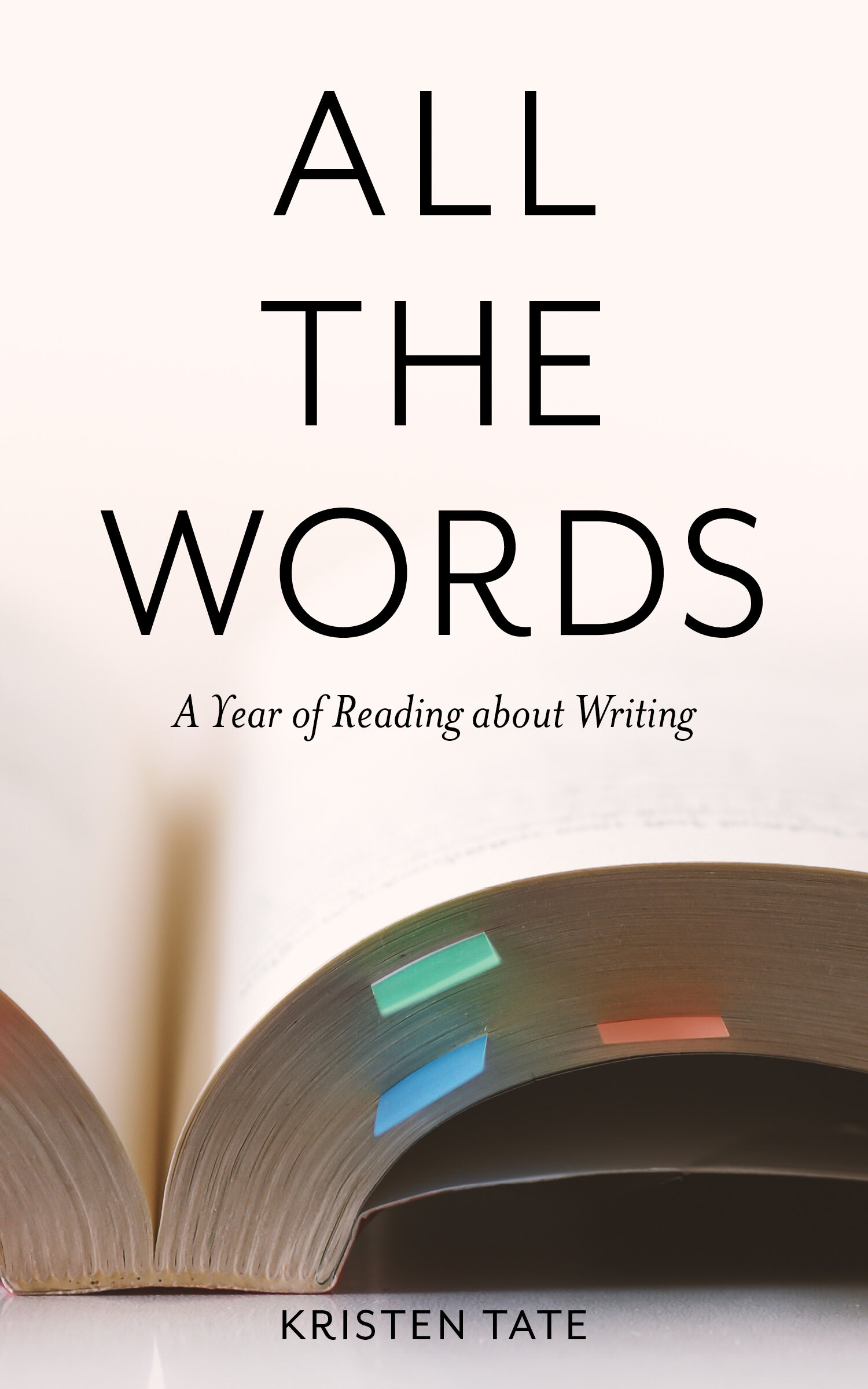Big Magic, by Elizabeth Gilbert
This is part of a series of weekly reviews of writing craft books written in 2019, later revised and collected in Kristen’s book All the Words: A Year of Reading About Writing. Read the first chapter or buy the book in our Shop.
It is week six of 2019. How is the writing going for you? Here at the garret, I wrote myself out of that tangle I was in last week. It was just a simple job description, and I had expected it to take maybe an hour. But an evil little demon called imposter syndrome snuck in and started whispering,Who do you think you are, acting like a boss? And that’s all it took to stop the words – or to stop them from sounding like mine.
Reading Elizabeth Gilbert’s Big Magic this week helped me shake off that demon by reminding me that I can and do give myself permission to be a business owner – and a boss. Sure, I’ve got an official-looking business registration certificate from the city of San Francisco and an editing certification in a file folder in my office and even a fancy, framed PhD diploma sitting somewhere in the garage. I’ve got a website and a logo and some cool business cards. But none of these things gave me permission to start – and now to expand – an editing business. That was something I had to give myself.
And that’s Gilbert’s key message for creators of all kinds: “You do not need anybody’s permission to live a creative life.”
You also, she tells us, don’t need to have a degree. You don’t need to be independently wealthy, and you don’t need a studio ‘wife’ to keep all of life’s mundanities away. You don’t need to be in thrall to the dark demons of addiction. You don’t need to suffer to be creative.
What do you need? According to Gilbert, “The essential ingredients for creativity remain exactly the same for everybody: courage, enchantment, permission, persistence, trust—and those elements are universally accessible. Which does not mean that creative living is always easy; it merely means that creative living is always possible.”
The book is organized around these five ingredients, making it easy to absorb a dose of whatever it is you happen to need at the time. And I think that’s what Big Magic is: a creative medicine cabinet that you can use to diagnose and treat any number of ills. If the words are stuck or you are paralyzed by doubt or you feel dull and uninspired, spend some time with this book. (The audiobook version, read by Gilbert herself, is particularly good company.)
I didn’t put Big Magic on the schedule for this week because I was stuck – in fact, I hadn’t recognized my stuck-ness as a problem Gilbert could help me with – but because I wanted to imagine Gilbert in conversation with the other writers I’ve looked at so far. Anne Lamott, Stephen King, and E.M. Forster all treat inspiration as a black hole that is impossible to even see clearly, much less explore. You must dive in anyway, they seem to tell us, and if you are lucky you will be magically transported to another galaxy and bring your readers with you. If you aren’t lucky – well, then you might find yourself drifting aimlessly in that empty space of existential despair where we left Forster last week.
Part of the magic of Big Magic is that Gilbert acknowledges the mystery of the creative process, but she refuses to be frightened by it. She has even learned to enjoy the trickster side of creativity. One of the core stories she tells in the book involves her decision to shelve a book idea only to see a very similar idea turned into a successful novel by another writer. Gilbert could have responded with paranoia and envy. Instead, she finds the coincidence delightful – proof of her belief that creativity is mystical, transcendent, divine, “a force of enchantment not entirely human in its origins.”
This belief guides the way Gilbert approaches her work. She cultivates curiosity, staying open to the ideas flitting around her, and she sits down and does the writing. Inspiration, Gilbert says, “will come and go, and you must let it come and go.” You must “let go of the addiction to creative suffering” and approach the work with “stubborn gladness” and “a fierce sense of personal entitlement.”
It’s that sense of personal entitlement that will allow you to give yourself permission to do the work. And that’s where I want to leave you on this Sunday, with a reminder that you have permission to be a writer. I am not giving you permission, because you already have it – it is your birthright. But I am reminding you.
Here’s to embracing the big magic, y’all,
Kristen
Check out our Resources page for more in-depth articles on writing, revising, polishing, and publishing your novel. Sign up for our weekly newsletter for fresh content, and you’ll also get our free PDF with recommended reading for writers!



